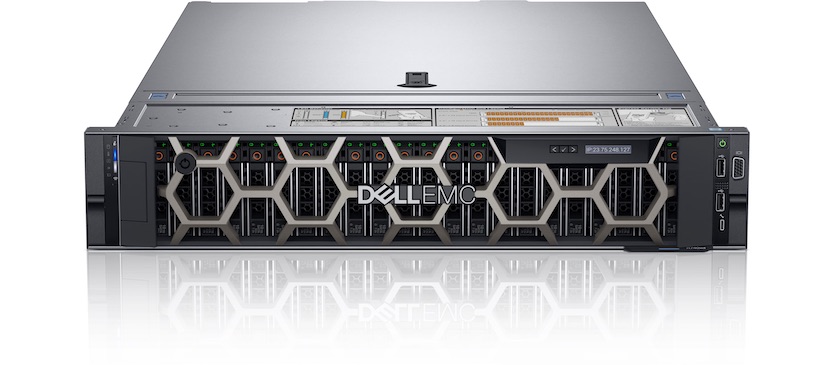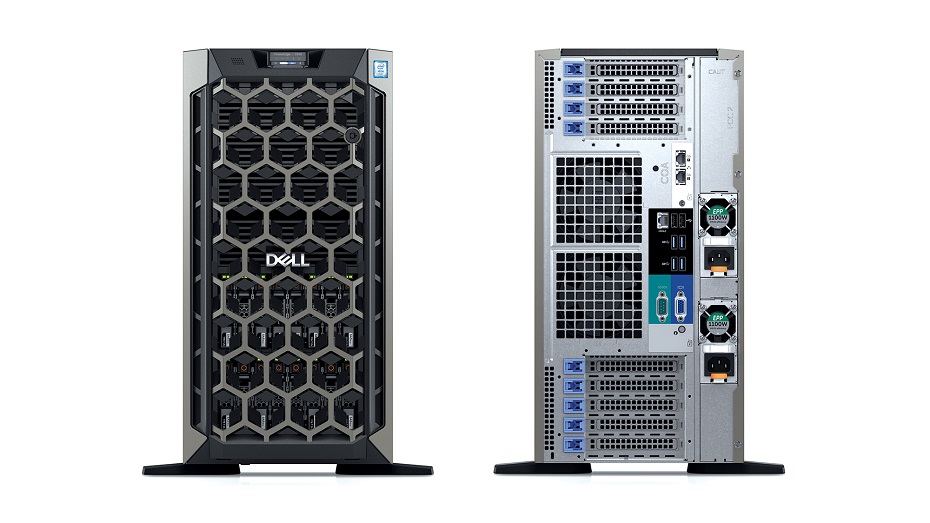The Best DELL Server For Virtualization
In the dynamic landscape of modern IT infrastructure, virtualization stands as a pivotal technology, enabling organizations to optimize resource utilization, enhance scalability, and streamline management. As businesses continue to harness the benefits of virtualization, the choice of a robust server infrastructure becomes paramount. Among the key players in the server market, Dell has consistently delivered solutions that cater to the diverse needs of virtualized environments.
This article delves into the realm of virtualization-ready servers, putting the spotlight on Dell's offerings that stand out for their performance, scalability, and reliability. Whether you are a seasoned IT professional or an organization on the cusp of virtualizing your workloads, navigating the plethora of options can be challenging. We aim to provide insights into the best Dell servers for virtualization, shedding light on their capabilities, specifications, and features that make them formidable choices for hosting virtual machines.
3 Best DELL Servers for Virtualization
These three Dell servers cover a range of form factors and performance levels. Choose the one that best aligns with your specific virtualization requirements, keeping in mind factors such as scalability, storage needs, and available space.
Dell PowerEdge R740

The Dell PowerEdge R740 is a versatile and powerful rack server designed for virtualization and other demanding workloads. It offers a balanced combination of performance, scalability, and reliability.
Specifications:
-
Processors: Intel Xeon Scalable processors (up to 2)
-
Memory: Up to 3TB DDR4 RDIMM or LRDIMM
-
Storage: Up to 16 x 2.5" or 8 x 3.5" drives
-
RAID Controllers: PERC H730, H730P, H740P
-
Networking: Dual-port 1GbE or 10GbE options
-
Expansion Slots: Up to 8 PCIe slots
-
Remote Management: iDRAC9 with Lifecycle Controller
Dell PowerEdge R640

The Dell PowerEdge R640 is a compact and efficient rack server, suitable for virtualization and dense data center environments. It delivers high-performance computing in a space-saving form factor.
Specifications:
-
Processors: Intel Xeon Scalable processors (up to 2)
-
Memory: Up to 3TB DDR4 RDIMM or LRDIMM
-
Storage: Up to 10 x 2.5" drives or 4 x 3.5" drives
-
RAID Controllers: PERC H330, H730P, H740P
-
Networking: Dual-port 1GbE or 10GbE options
-
Expansion Slots: Up to 3 PCIe slots
-
Remote Management: iDRAC9 with Lifecycle Controller
Dell PowerEdge T640

The Dell PowerEdge T640 is a tower server that offers scalability and versatility for virtualization and demanding workloads. It is well-suited for businesses requiring a combination of performance and expandability.
Specifications:
-
Processors: Intel Xeon Scalable processors (up to 2)
-
Memory: Up to 3TB DDR4 RDIMM or LRDIMM
-
Storage: Up to 32 x 2.5" or 18 x 3.5" drives
-
RAID Controllers: PERC H730P, H740P
-
Networking: Dual-port 1GbE or 10GbE options
-
Expansion Slots: Up to 8 PCIe slots
-
Remote Management: iDRAC9 with Lifecycle Controller
Step-by-Step Guide
Choosing the best Dell server for virtualization involves considering several factors to ensure that the server meets your specific needs. Here's a step-by-step guide to help you make an informed decision:
-
Define Requirements:
-
Identify the purpose of virtualization (e.g., running multiple VMs, hosting applications).
-
Determine the number of virtual machines you plan to run.
-
Assess the resource requirements (CPU, RAM, storage) for each virtual machine.
-
Consider Workload Characteristics:
-
Evaluate the nature of the workloads (e.g., compute-intensive, memory-intensive) to choose the right balance of resources.
-
Performance Requirements:
-
Determine the required performance level, considering factors like processing power, memory capacity, and storage speed.
-
Assess whether you need features like redundant power supplies and RAID for data protection.
-
Hardware Compatibility:
-
Ensure that the server hardware is compatible with the virtualization platform you intend to use (e.g., VMware, Hyper-V, or KVM).
-
Check for hardware compatibility lists provided by the virtualization software vendor.
-
Processor Selection:
-
Choose processors that support virtualization technologies (Intel VT-x or AMD-V).
-
Consider multi-core processors for better parallel processing of virtual machines.
-
Memory (RAM) Considerations:
-
Determine the total amount of RAM needed for your virtualized environment.
-
Ensure that the server has enough RAM slots for future expansion.
-
Consider DDR4 or higher RAM for better performance.
-
Storage Requirements:
-
Evaluate the storage capacity needed for virtual machines and data.
-
Choose between HDDs and SSDs based on performance and capacity requirements.
-
Consider RAID configurations for data redundancy and improved performance.
-
Networking Considerations:
-
Assess the networking requirements, including the number of network interfaces and required bandwidth.
-
Check for support for high-speed networking standards (e.g., 10GbE or 25GbE).
-
Form Factor and Rack Space:
-
Choose a server form factor (tower, rackmount) based on available space and infrastructure.
-
Consider the physical dimensions of the server, especially if it will be placed in a rack.
-
Scalability and Future Expansion:
-
Ensure that the server is scalable to accommodate future growth in terms of VMs and resource requirements.
-
Check for the availability of expansion slots and compatibility with additional hardware.
-
Management and Monitoring:
-
Assess the server's management features, such as remote management interfaces (iDRAC for Dell servers), to facilitate easy monitoring and troubleshooting.
-
Budget Considerations:
-
Set a budget for your virtualization project and choose a server that provides the best value for the investment.
-
Make the Purchase:
-
Once satisfied with your choice, proceed to purchase the selected Dell server from authorized channels.
By following these steps, you can make a well-informed decision and choose the best Dell server for your virtualization needs.